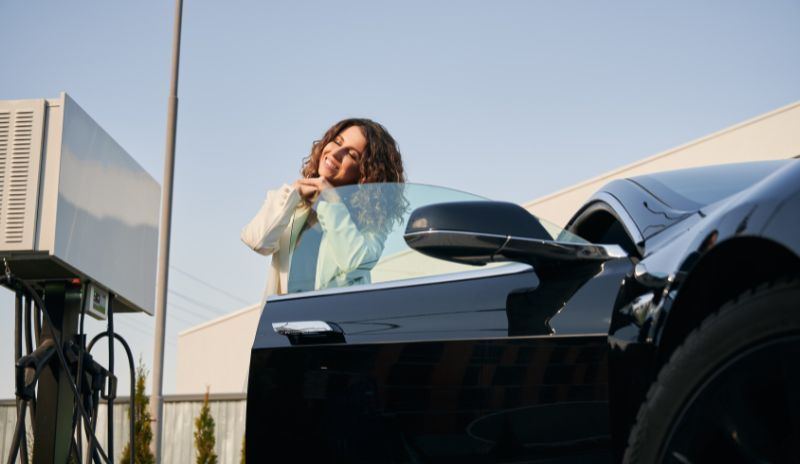Agreed Value vs Stated Value: How to Insure Exotic Cars the Right Way
See How We're Different
or call us: (214) 253-0570
When it comes to insuring exotic cars, understanding the nuances of different valuation methods is crucial. Two common terms that often arise in this context are "agreed value" and "stated value." Each has its own implications for coverage and claims, which can significantly affect the financial protection of your prized possession. This article delves into the differences between these two valuation methods, helping you make an informed decision when insuring your exotic vehicle.
Understanding Exotic Car Insurance
Exotic cars are not just vehicles; they are investments, often representing significant financial commitments. Unlike standard cars, exotic cars can appreciate in value, making their insurance needs unique. Standard auto insurance policies may not adequately cover the true value of these vehicles, which is why specialized insurance options are available.
Insurance for exotic cars typically falls into two categories: agreed value and stated value. Both methods aim to protect car owners, but they do so in different ways. Understanding these differences is essential for ensuring that your exotic car is adequately covered in the event of a loss.
What is Agreed Value Insurance?
Agreed value insurance is a type of policy where the insured and the insurance company agree on the value of the car at the time the policy is written. This means that in the event of a total loss, the owner will receive the agreed-upon amount without depreciation. This is particularly beneficial for exotic cars, which can have fluctuating market values.
This type of insurance provides peace of mind, knowing that if the car is damaged or stolen, the owner will receive a predetermined amount that reflects the car's worth. It eliminates the uncertainty and potential disputes that can arise during the claims process.
Benefits of Agreed Value Insurance
There are several advantages to choosing agreed value insurance for exotic cars. Firstly, it offers clarity and certainty. Owners know exactly how much they will receive in the event of a loss, which can be crucial for high-value vehicles. Additionally, agreed value policies often come with specialized coverage options tailored for exotic cars, such as coverage for spare parts and custom modifications.
Another significant benefit is that these policies typically do not factor in depreciation. Since exotic cars can appreciate over time, this means that owners can potentially receive a payout that reflects the current market value, rather than a depreciated figure that may not cover the cost of replacing the vehicle.
Moreover, many exotic car insurance policies include additional perks that cater specifically to the needs of luxury car owners. For instance, some insurers offer roadside assistance that is equipped to handle high-performance vehicles, ensuring that even in the event of a breakdown, the car is treated with the utmost care. Furthermore, these policies often provide coverage for track days and other motorsport events, allowing enthusiasts to enjoy their vehicles in a controlled environment without the worry of losing coverage.
It’s also worth noting that the underwriting process for exotic car insurance can be more personalized than that of standard auto insurance. Insurers often take into account the car's history, its condition, and even the owner's driving habits, which can lead to more tailored coverage options and potentially lower premiums for responsible drivers. This level of customization not only enhances the overall insurance experience but also ensures that exotic car owners receive the best possible protection for their prized possessions.
What is Stated Value Insurance?
Stated value insurance, on the other hand, is a policy where the owner declares a value for the vehicle, but the insurance company does not guarantee that amount in the event of a total loss. Instead, the insurer will pay either the stated value or the actual cash value of the car at the time of the loss, whichever is lower. This can lead to complications during the claims process.
While stated value insurance may seem appealing due to its lower premiums compared to agreed value policies, it carries inherent risks. The actual cash value is determined by factors such as depreciation and market trends, which can significantly reduce the payout amount in the event of a claim.
Risks of Stated Value Insurance
One of the primary risks associated with stated value insurance is the potential for underinsurance. If the market value of the car has decreased significantly or if the insurer determines that the actual cash value is lower than the stated value, the owner may find themselves in a difficult position when filing a claim. This could lead to financial losses that exceed the insurance payout.
Moreover, the ambiguity surrounding the payout can create disputes between the insurer and the policyholder. In the event of a total loss, the owner may feel that their car was worth more than the insurance company is willing to pay, leading to frustration and potential legal battles.
Additionally, it's important to consider the types of vehicles that typically utilize stated value insurance. Classic cars, collector vehicles, and modified cars often fall into this category, as their value can fluctuate based on rarity, condition, and market demand. Owners of such vehicles may find themselves in a precarious situation if the stated value does not align with the actual market trends at the time of a loss. This discrepancy can make it challenging for owners to accurately assess their coverage needs, further complicating the claims process.
Furthermore, the process of determining the appropriate stated value can be subjective, leading to varying opinions on what constitutes an accurate valuation. Owners may rely on appraisals or market comparisons, but these methods can be inconsistent. This subjectivity not only affects the owner's peace of mind but can also impact the insurer's willingness to honor claims, as they may question the validity of the stated value provided. As a result, policyholders are encouraged to maintain thorough documentation and seek professional appraisals to support their claims, ensuring they are better prepared in the event of a loss.
Key Differences Between Agreed Value and Stated Value Insurance
To make an informed decision about which type of insurance is best for an exotic car, it’s essential to understand the key differences between agreed value and stated value insurance. These distinctions can influence not only the cost of premiums but also the level of protection offered to the car owner.
Payout Structure
The most significant difference lies in the payout structure. With agreed value insurance, the payout is predetermined and agreed upon at the start of the policy. In contrast, stated value insurance may result in a payout that is subject to depreciation and market conditions, leading to potential financial shortfalls.
This difference can be particularly crucial for exotic car owners who have invested a significant amount of money into their vehicles. Knowing that they will receive a specific amount in the event of a loss can provide peace of mind that stated value insurance may not offer. Additionally, in the case of rare or vintage exotic cars, the agreed value can be based on a thorough appraisal, ensuring that the owner is compensated fairly based on the car's unique characteristics and market demand.
Premium Costs
Generally, agreed value insurance tends to come with higher premiums compared to stated value insurance. This is due to the increased risk the insurer takes on by guaranteeing a specific payout. However, for many exotic car owners, the added cost is worth the peace of mind and financial security that comes with having a guaranteed payout.
In contrast, stated value insurance may be more affordable upfront, but the potential risks and uncertainties associated with it can lead to higher costs in the long run, especially if a claim needs to be filed. Furthermore, owners should consider the potential for increased premiums over time, as insurers may adjust rates based on the vehicle's depreciation and market trends, which can further complicate the financial landscape for those opting for stated value coverage.
Coverage Options
Agreed value policies often come with specialized coverage options designed for exotic cars. These may include coverage for custom modifications, spare parts, and even agreed-upon values that reflect the car's current market worth. This tailored approach ensures that exotic car owners have the coverage they need to protect their investments.
Stated value insurance, while it may offer some flexibility, typically does not provide the same level of specialized coverage. This can leave owners vulnerable if their car has unique features or modifications that are not adequately covered under a standard policy. Additionally, many agreed value policies include provisions for roadside assistance, rental reimbursement, and even coverage for track days, which can be invaluable for enthusiasts who actively participate in motorsport events or car shows. This comprehensive approach not only safeguards the vehicle itself but also enhances the overall ownership experience, making it a more attractive option for dedicated car collectors.
Choosing the Right Insurance for Your Exotic Car
When it comes to insuring an exotic car, choosing the right policy is paramount. The decision between agreed value and stated value insurance should be based on individual circumstances, including the car's value, how much it has appreciated, and the owner's financial situation.
Assessing Your Car's Value
Before making a decision, it’s essential to assess the current market value of the exotic car. This can be achieved through professional appraisals, market research, and consulting with experts in the field. Understanding how much the car is worth will help determine whether an agreed value or stated value policy is more suitable.
For cars that have a history of appreciation or are rare and collectible, agreed value insurance may be the better choice. Conversely, if the car is more of a daily driver with a stable value, stated value insurance might suffice.
Consulting with Insurance Professionals
Consulting with insurance professionals who specialize in exotic car insurance can provide valuable insights. They can help clarify the differences between policies, assess the car's value, and recommend the best coverage options. Their expertise can be instrumental in navigating the complexities of insuring high-value vehicles.
Additionally, they can provide information on any additional coverage options that may be beneficial, such as roadside assistance, classic car coverage, or coverage for track days, which are often important for exotic car enthusiasts. Some insurers even offer specialized policies that cover modifications made to the car, ensuring that any enhancements are protected in case of an accident.
Reviewing Policy Terms and Conditions
Before finalizing an insurance policy, it’s crucial to thoroughly review the terms and conditions. This includes understanding how claims will be handled, what documentation is required, and any limitations or exclusions that may apply. Being well-informed about the policy can prevent surprises in the event of a claim.
Moreover, it’s advisable to periodically review and update the policy as the car’s value changes. This ensures that the coverage remains adequate and reflects any modifications or enhancements made to the vehicle. Additionally, staying informed about market trends and the exotic car community can provide insights into potential changes in value, which can be critical for adjusting your insurance coverage accordingly.
Furthermore, consider the implications of your driving habits on your insurance policy. For instance, if you frequently participate in car shows or racing events, it’s important to discuss these activities with your insurer. Some policies may have specific clauses regarding usage, and understanding these can help you avoid potential pitfalls that could affect your coverage in the event of an incident.
Conclusion
Insuring an exotic car is a significant responsibility that requires careful consideration of various factors, including the valuation method. Agreed value insurance offers clarity, certainty, and specialized coverage, making it an attractive option for many exotic car owners. On the other hand, stated value insurance may present risks that can lead to underinsurance and potential disputes during claims.
Ultimately, the decision should be based on individual circumstances, including the car's value, how much it has appreciated, and the owner's financial situation. Consulting with insurance professionals and thoroughly reviewing policy terms can help ensure that the right coverage is chosen, providing peace of mind and financial protection for one of life’s most thrilling investments.




